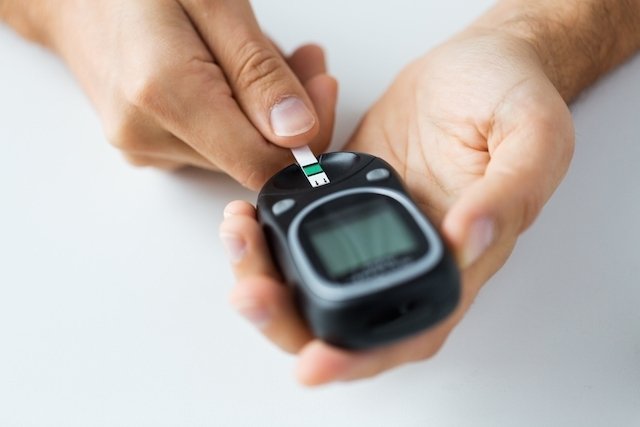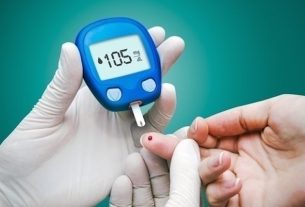Hypoglycemia occurs when the blood glucose level is lower than normal, which can directly interfere with the baby’s development, especially when the levels are very low (less than 70 mg/dL).
Pregnant women with hypoglycemia may experience weakness, dizziness, a feeling of numbness, double vision and cold sweats, for example.
In the presence of signs and symptoms indicative of hypoglycemia, it is important to consult an obstetrician to assess the amount of circulating sugar and the risk for the mother and baby. It is normally recommended that women consume a source of carbohydrate that promotes a rapid increase in blood glucose, and it is also important to eat every 2 to 3 hours. See what to do during a hypoglycemia crisis.

Symptoms of hypoglycemia in pregnancy
The main symptoms of hypoglycemia in pregnancy are:
- Dizziness;
- Weakness;
- Fainting;
- Pale skin;
- Headache;
- Feeling of numbness;
- Mental confusion;
- Double or blurred vision;
- Nausea;
- Cold sweat;
- Difficulty carrying out daily activities.
In most cases, when glycemia is corrected as soon as symptoms of hypoglycemia are noticed, there are no sequelae or negative consequences. Therefore, complications are more common in cases where the pregnant woman does not follow all of the doctor’s instructions.
To find out if it is hypoglycemia, the doctor may, in addition to evaluating the symptoms presented by the woman, recommend carrying out tests that assess blood glucose levels, which can be done on an empty stomach or after a meal. In general, hypoglycemia is considered when fasting glucose levels are below 70 mg/dL. Learn more about hypoglycemia.
Possible complications
Hypoglycemia in pregnancy, if not identified and treated, can interfere with the supply of oxygen to the brain, which can cause irreversible brain damage, coma and death. Furthermore, it is also possible to interfere with the baby’s development, as well as the supply of oxygen, which can also cause irreversible brain damage and learning difficulties, for example.
What to do
Treatment for hypoglycemia must be carried out under the guidance of a doctor and consists of eating every 2 or 3 hours to ensure that there is a sufficient amount of glucose in the blood capable of guaranteeing the proper functioning of the woman’s body and the correct development of the baby.
In general, it is recommended to consume foods with a low glycemic index, such as unpeeled fruits, whole grains, vegetables and lean meats, for example. Furthermore, it is important that the doctor is consulted regularly so that it is possible to assess whether glucose levels are returning to normal and whether there are any complications for the baby, and in these cases an ultrasound examination may also be recommended.

Sign up for our newsletter and stay up to date with exclusive news
that can transform your routine!
Warning: Undefined array key "title" in /home/storelat/public_html/wp-content/plugins/link-whisper-premium/templates/frontend/related-posts.php on line 12
Warning: Undefined array key "title_tag" in /home/storelat/public_html/wp-content/plugins/link-whisper-premium/templates/frontend/related-posts.php on line 13



